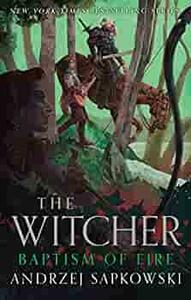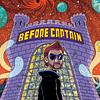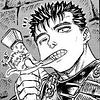Take a photo of a barcode or cover
adventurous
dark
tense
medium-paced
Plot or Character Driven:
Plot
Strong character development:
No
Loveable characters:
Yes
Diverse cast of characters:
Yes
Flaws of characters a main focus:
No
This definitely feels like a 'setting up' book of the series where we're introduced to new characters etc but nothing too much happens plot wise. It was still interesting and I really enjoyed it.
Better than the previous. More compelling but not enough to warrrant 4 stars from me, but I'm hopeful for the series.
"Unbridled altruism is a huge vice of mine...I simply have to do good. I am a sensible dwarf, however, and know that I’m unable to do everyone good. Were I to attempt to be good to everyone, to the entire world and to all the creatures living in it, it would be a drop of fresh water in the salt sea. In other words, a wasted effort. Thus, I decided to do specific good; good which would not go to waste. I’m good to myself and my immediate circle.”
This is a tough book to review, really. The 3rd book in the Witcher Saga (5th book in the universe, if you count it that way - which I do) is split by tales between Witcher and his newfound gang, Ciri and the Rats, and a brief interlude about Yennefer. Sapkowski really can't seem to decide on a single writing style, and he transcends literary norms by jumping between perspectives and times, narrative and folk lore (even one time opening a chapter with a grandfather telling his grandchildren the bedtime story of the Witcher and his friends - thus pushing our characters out of the realm of the series and into the fabled lore of the universe he has created). Because of this, the writing takes on an odd quality where I become immediately immersed upon reading it, but once I put it down, I find it difficult to pick back up again due to its density and chaotic nature. This book doesn’t do much for the overall plot of the characters (each of the end up basically where they started at the beginning, but maybe more shaken up and demoralized). This also wasn’t an exciting “what’s-gonna-happen-next” read; there was a certain dreadful inevitability to the story that simultaneously kept be voraciously reading, but also never wanting to pick it up again. Like others who have reviewed this series, this might be one of my favorites of the Saga so far.
It returned to its quippy adventurous origins and introduced us to some new compelling characters as well: Milva (a druid torn between her adopted Elven identity with her compulsion to preserve the Elven race and culture, and a desire to find out what she might be if she finally lived as a human); Regis (a vampire that subverts expectations and makes us question if monsters born of mutations are really monstrous at all or merely a fluke of evolution and biological change, and forces Geralt to reconsider his profession as a Witcher by pointing out the incessant monstrosities of humanity); Zoltan (a dwarf to whom the introductory quote is attributed to, someone who tries to do good but can't always follow his morals, and someone who rebukes assimilation to the human culture and is outraged by the implication that he must been a Nilfgaardian sympathizer simply on the basis of his non-humanness); a return to Dandelion (representative of the commoners - not the most evil character by far, but certainly not a selfless character by any means, one who sacrifices others and suppresses empathy as a means of survival... but the audience must grapple with their own approach to life as they either defend or detest his behavior); a development in Witcher (who finally accepts that, sometimes, being neutral is the same as being complicit).
This book offered an analysis of what it means for women to make choices for themselves or sacrifices for others, a commentary on the brutalities of war and the dangers of neutrality, and a call-to-action against colonialism. I know this saga is based on Polish experiences in WWII, and it's hard not to see parallels. Nilfgaard is a nation that seeks to bring the rest of the world into a new age of enlightenment but they do so by slaughtering surrounding kingdoms and weaponizing anti-human Elvish sentiments.
Wiesel said in his Nobel Peace Prize acceptance speech, "Neutrality helps the oppressor, never the victim. Silence encourages the tormentor, never the tormented. Sometimes we must interfere...Wherever men or women are persecuted because of their race, religion, or political views." Geralt's commentary so closely reflects this, I can't help but think this is what Sapkowski had in mind.
HOWEVER... while it is clear from my lengthy review that I indeed enjoyed this book, it also made apparent to me certain aspects of the series that are becoming too difficult for me to swallow. I loved the scrappy crew the Witcher has acquired, but their galavanting through the forest (particularly with Dandelion's whimsical musing narrating the backdrop) made me realize just how much I missed the short stories. I missed Geralt's adventures, and I missed our primary characters being the focal point of the narrative. I was debating between 4 and 5 stars because of this, but I can't fault the book for what is absolutely my personal preference for a character-driven novel. This is certainly NOT character driven - as the saga continues, we seem to be becoming further removed from our characters, which I now view more as vehicles for movement in the general universe that has been created (now viewed more in the perspective and retelling of folklore as legends/myths than personal narrative). I also continue to dislike the rats and their two-dimensional characterization, and I cannot help but feel that Cahir's love for Ciri is no less disgusting than Jacob imprinting on Renesmee.
I don't know if I can finish the last two books in this series - I truly don't. I need to take a break for now but maybe I will return and finish, if only to get closure for the characters I have become attached to.
This is a tough book to review, really. The 3rd book in the Witcher Saga (5th book in the universe, if you count it that way - which I do) is split by tales between Witcher and his newfound gang, Ciri and the Rats, and a brief interlude about Yennefer. Sapkowski really can't seem to decide on a single writing style, and he transcends literary norms by jumping between perspectives and times, narrative and folk lore (even one time opening a chapter with a grandfather telling his grandchildren the bedtime story of the Witcher and his friends - thus pushing our characters out of the realm of the series and into the fabled lore of the universe he has created). Because of this, the writing takes on an odd quality where I become immediately immersed upon reading it, but once I put it down, I find it difficult to pick back up again due to its density and chaotic nature. This book doesn’t do much for the overall plot of the characters (each of the end up basically where they started at the beginning, but maybe more shaken up and demoralized). This also wasn’t an exciting “what’s-gonna-happen-next” read; there was a certain dreadful inevitability to the story that simultaneously kept be voraciously reading, but also never wanting to pick it up again. Like others who have reviewed this series, this might be one of my favorites of the Saga so far.
It returned to its quippy adventurous origins and introduced us to some new compelling characters as well: Milva (a druid torn between her adopted Elven identity with her compulsion to preserve the Elven race and culture, and a desire to find out what she might be if she finally lived as a human); Regis (a vampire that subverts expectations and makes us question if monsters born of mutations are really monstrous at all or merely a fluke of evolution and biological change, and forces Geralt to reconsider his profession as a Witcher by pointing out the incessant monstrosities of humanity); Zoltan (a dwarf to whom the introductory quote is attributed to, someone who tries to do good but can't always follow his morals, and someone who rebukes assimilation to the human culture and is outraged by the implication that he must been a Nilfgaardian sympathizer simply on the basis of his non-humanness); a return to Dandelion (representative of the commoners - not the most evil character by far, but certainly not a selfless character by any means, one who sacrifices others and suppresses empathy as a means of survival... but the audience must grapple with their own approach to life as they either defend or detest his behavior); a development in Witcher (who finally accepts that, sometimes, being neutral is the same as being complicit).
This book offered an analysis of what it means for women to make choices for themselves or sacrifices for others, a commentary on the brutalities of war and the dangers of neutrality, and a call-to-action against colonialism. I know this saga is based on Polish experiences in WWII, and it's hard not to see parallels. Nilfgaard is a nation that seeks to bring the rest of the world into a new age of enlightenment but they do so by slaughtering surrounding kingdoms and weaponizing anti-human Elvish sentiments.
Wiesel said in his Nobel Peace Prize acceptance speech, "Neutrality helps the oppressor, never the victim. Silence encourages the tormentor, never the tormented. Sometimes we must interfere...Wherever men or women are persecuted because of their race, religion, or political views." Geralt's commentary so closely reflects this, I can't help but think this is what Sapkowski had in mind.
HOWEVER... while it is clear from my lengthy review that I indeed enjoyed this book, it also made apparent to me certain aspects of the series that are becoming too difficult for me to swallow. I loved the scrappy crew the Witcher has acquired, but their galavanting through the forest (particularly with Dandelion's whimsical musing narrating the backdrop) made me realize just how much I missed the short stories. I missed Geralt's adventures, and I missed our primary characters being the focal point of the narrative. I was debating between 4 and 5 stars because of this, but I can't fault the book for what is absolutely my personal preference for a character-driven novel. This is certainly NOT character driven - as the saga continues, we seem to be becoming further removed from our characters, which I now view more as vehicles for movement in the general universe that has been created (now viewed more in the perspective and retelling of folklore as legends/myths than personal narrative). I also continue to dislike the rats and their two-dimensional characterization, and I cannot help but feel that Cahir's love for Ciri is no less disgusting than Jacob imprinting on Renesmee.
I don't know if I can finish the last two books in this series - I truly don't. I need to take a break for now but maybe I will return and finish, if only to get closure for the characters I have become attached to.
Another mixed bag of sorts. For the first half or so, I was all in. Loved the road trip with Geralt and crew. It felt so contained and character-driven. All the people in the story felt distinct and well drawn.
But then we divert back to witches and factions and characters I feel like I barely have a grasp on, and the story just lost me with all the exposition. Late in the game, we get back to Geralt’s journey and the enjoyment picked up for me, but then again it ended with people fighting wars I have no invested interest or understanding in. Bottom line, the book was sectionally-enjoyable for me. I wish I could like one of these all the way through.
It is a miracle the games are as good as they are.
But then we divert back to witches and factions and characters I feel like I barely have a grasp on, and the story just lost me with all the exposition. Late in the game, we get back to Geralt’s journey and the enjoyment picked up for me, but then again it ended with people fighting wars I have no invested interest or understanding in. Bottom line, the book was sectionally-enjoyable for me. I wish I could like one of these all the way through.
It is a miracle the games are as good as they are.
adventurous
emotional
funny
inspiring
reflective
fast-paced
Plot or Character Driven:
A mix
Strong character development:
Yes
Loveable characters:
Yes
Diverse cast of characters:
Yes
Flaws of characters a main focus:
Yes
adventurous
challenging
fast-paced
adventurous
mysterious
tense
medium-paced
Plot or Character Driven:
Plot
Strong character development:
Complicated
Loveable characters:
Yes
Diverse cast of characters:
Yes
Flaws of characters a main focus:
Complicated
adventurous
slow-paced
Plot or Character Driven:
A mix
Strong character development:
N/A
Loveable characters:
Yes
Diverse cast of characters:
Yes
Flaws of characters a main focus:
Yes
adventurous
challenging
funny
tense
medium-paced
Plot or Character Driven:
Plot
Strong character development:
No
Loveable characters:
Yes
Diverse cast of characters:
Yes
Flaws of characters a main focus:
Complicated
I enjoyed this adventure! I absolutely love the new characters introduced and the epic adventure our heros are on. Wish we got more of Ciri and Yennefer, but still a good, fun read!
adventurous
medium-paced
Plot or Character Driven:
Character
Strong character development:
Yes
Loveable characters:
Yes
Diverse cast of characters:
Yes
Flaws of characters a main focus:
No
Graphic: Miscarriage
Moderate: Blood
Minor: Alcoholism, Sexual violence, Torture, Toxic relationship, Abortion, War








